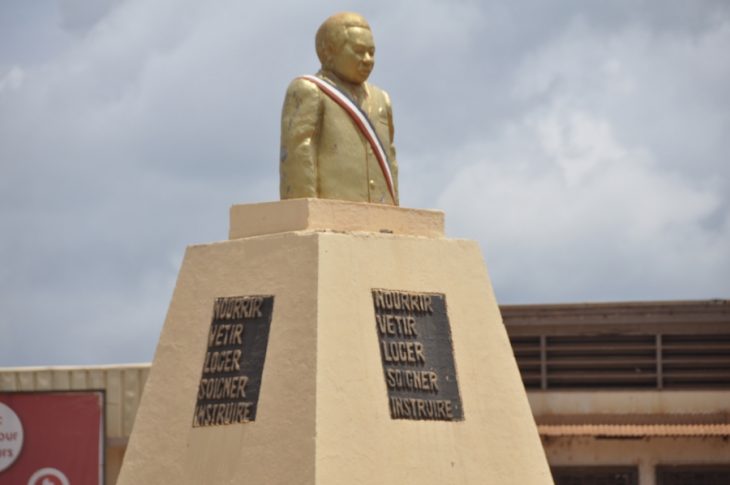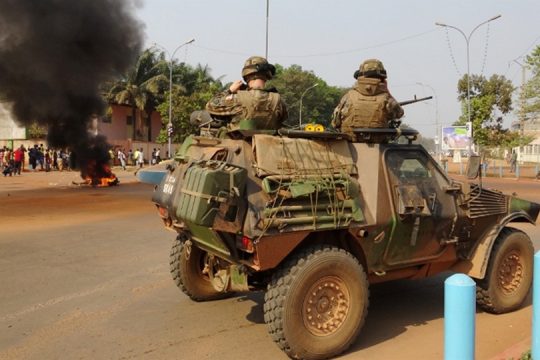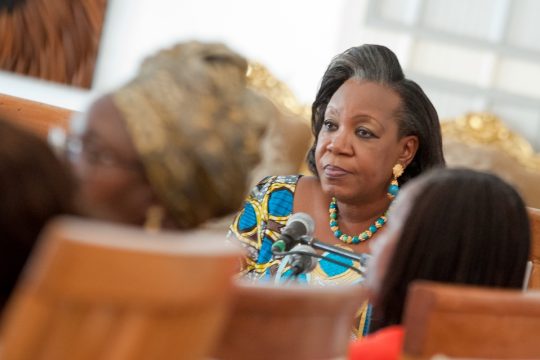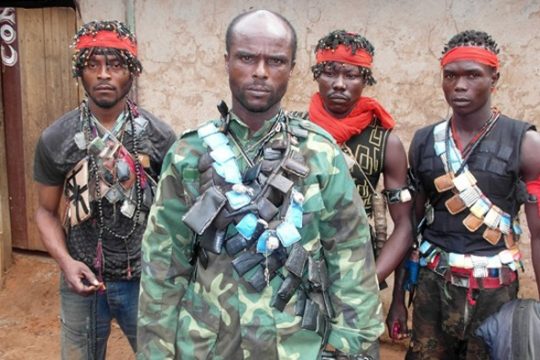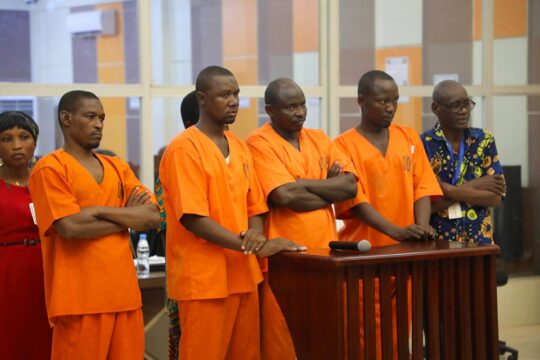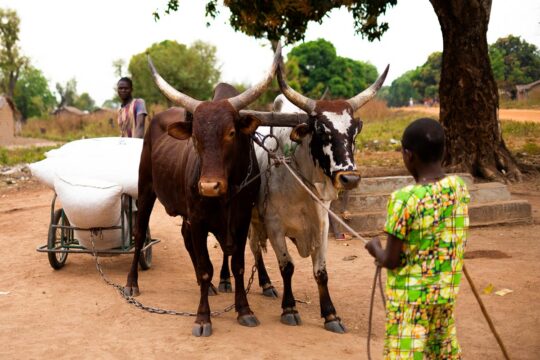The Central African Republic (CAR) is gripped by electoral fever in the run up to presidential polls scheduled for October 18. The candidates are numerous, even if some people are calling for a postponement so the elections can be better prepared.
More than 20 people have already been endorsed as candidates by their parties or announced their intention to run as independents, including sons of ex-presidents, former heads of government and individuals emerging from nowhere. They all promise to pull the CAR out of the deep crisis it has been in for two years, even those who failed to do so in the recent past in less serious circumstances.
Among the surprise candidates is former president François Bozizé, who was overthrown in March 2013 by Seleka rebels led by Michel Djotodia, who was himself overthrown in January 2014.
General Bozizé, who also took power by force in 2010, was chosen as presidential candidate by his party – the Kwa Na Kwa (KNK) – at a congress held in his absence in Bangui in early August. François Bozizé, who is strongly suspected of serious violations of international humanitarian law and under international sanctions, has been living in exile since his ouster. It seems he is now trying to make a comeback through the ballot box.
“We want Bozizé to come back and fight for the KNK, because we believe that with him as candidate we can win this presidential election,” interim KNK secretary general Bertin Béa told AFP just after the party congress. “A lot of people are trying to stop François Bozizé. Some want to stop him being a candidate by making him ineligible. But no judicial authority, no magistrate has yet ruled that François Bozizé has lost his civil rights, and he is not in prison.”
Sons of former presidents
The list also includes Désiré Nzanga Kolingba, son of former head of state André Kolingba. He is head of the RDC party, a former MP and former minister. Désiré Kolingba was a candidate in the elections for transition president after Michel Djotodia resigned on January 10, 2014. He was beaten by the current transition president Catherine Samba-Panza, who was at the time mayor of Bangui. His stated priorities if elected in October are restoring security in the country, re-establishing the authority of the State, unity, tolerance, a secular State and democracy. Unlike some others who think conditions are not right for elections, Kolingba junior says he thinks “elections should be held rapidly, because pulling the country into recovery cannot be done just during the transition period”.
Another candidate for the race is Sylvain Patassé, son of former president Ange-Félix Patassé, who was ousted by François Bozizé. His candidacy was among those announced several months ago. It was on March 8, International Women’s Day, that Sylvain Patassé announced his intention to contest the seat from which his father was removed in 2003. Because, the independent candidate explained, “whatever is women’s wish is God’s wish”. “You are the bedrock of our society, the guardians of our cultural heritage, the driving force without whom our country cannot succeed,” he told Central African women in a speech in Berberati. “I answer YES to your main question, I am ready to follow in the footsteps of our President Ange-Félix Patassé.”
Another person who has announced his intention to run as an independent is Jean-Serge Bokassa, son of “Emperor Bokassa I of the Central African Republic”. Declaring his candidacy on August 1 in the 20,000-seat stadium, he denounced “anarchy, insecurity, corruption, collapse of State authority, failure of the economy, impoverishment of the population and a progressive decline in the sense of national belonging”. Whilst also criticizing an electoral calendar “imposed from outside”, he said he had no other ambition than to “help open a path to a new society, united around Progress and Dignity, a more just, united, stronger society with stronger environmental and social values”.
Former heads of government
Former Prime Ministers in the running are Anicet-Georges Dologuélé (1999-2001) of the Union for Central African Renewal (URCA), Martin Ziguélé (2001-2003) of the Movement for the Liberation of the Central African people (MLPC), Faustin Archange Touadera (2008-2013) of the KNK and Nicolas Tiangaye (2013-2014) of the Republican Convention for Social Progress (CRPS). The best known one is undoubtedly Martin Ziguélé, who was an unsuccessful presidential candidate in both 2005 and 2011. “If Central Africans put their trust in me, then I will be President,” he told the Central African daily Agora in a July interview. “The presidential election is a meeting between a man and his people. Central Africans know me, they know what I am capable of, but I am also human and I have weaknesses, and it is together that we will rebuild this country.”
The last one on the list is Nicolas Tiangaye, a lawyer reputed to be honest and former transition Prime Minister under François Bozizé and Michel Djotodia (2013-2014). Since announcing his candidacy on August 9, the former head of the Bar has been advocating for effective disarmament throughout the country before elections, something that many Central Africans also support. His candidacy is already posing legal problems, because the transitional Constitutional Charter bans transition government members from running. But the lawyer says this clause does not affect him. “There is no provision in any of the founding texts of the transition relating to former transition government members,” says Nicolas Tiangaye. “I challenge anyone to find a single Article, a single provision that places any obligation on a former transition government member.” It is now up to the transitional Constitutional Court to decide if he can run.
Women are also in the race. Former deputy minister Marie-Reine Hassen of the Movement for Unity and Change in the Central African Republic (MRC-Centrafrique) wants to become the first female president of the country. So does Valentine Modamet, president of the Christian organization “Les Parvis”. The self-declared “Eternal Prophetess”, who has no political affiliation, declared her candidacy as an independent on July 27, saying it was for “peace and holiness, development, another kind of governance, a female perspective on running the country, and belief in God”.




